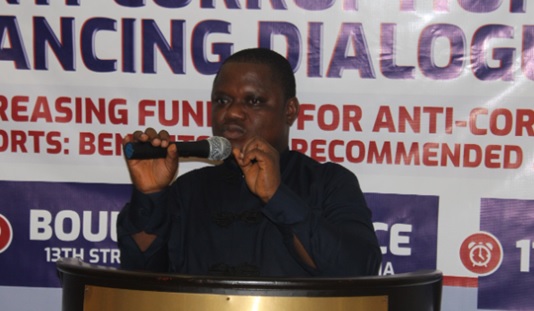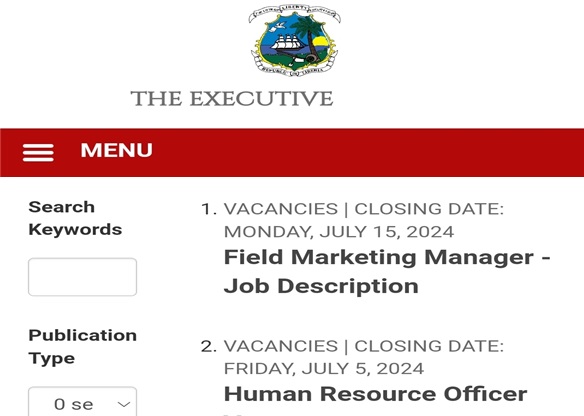MONROVIA – The Center for Transparency and Accountability (CENTAL), the Liberian chapter of Transparency International, released its 100-day plus anti-corruption monitoring report on June 20, 2024, evaluating the early days of President Joseph Boakai’s administration. Authored by Atty. Gerald D. Yeakula, an anti-corruption specialist, and Anderson D. Miamen, Executive Director of CENTAL, the report provides a comprehensive analysis of actions, inactions, and allegations of corruption under the new government.
President Boakai was inaugurated on January 22, 2024, marking the second democratic transfer of power in post-war Liberia. In his inaugural speech, Boakai acknowledged corruption as a significant challenge and pledged to reset the fight against corruption and impunity. As President, Boakai has the opportunity to demonstrate the potential he felt was untapped during his vice presidency under Ellen Johnson-Sirleaf.
The report highlights significant delays and controversies in government appointments. Out of 1,306 appointments, 38 were controversial, with 13 changed and 25 made ineffective due to revocation, resignation, court proceedings, or refusal by current office holders. CENTAL criticized the lack of transparency in some appointments, undermining the public’s right to know.
Several appointees returned to public service despite past allegations of corruption. Notable examples include:
- Tornorlah Varpilah: Appointed Chairman of the Liberia Maritime Authority, previously designated to restitute public funds.
Daniel Johnson: Appointed Secretary General of the Roberts Flight Information Region, wanted by the U.S. for defrauding USAID of approximately $1.9 million.
Nortu Jappah: Appointed to head the National Insurance Company of Liberia, previously forced to resign from the Liberia Water and Sewer Corporation over a corruption saga.
Rudolph Merab: Managing Director of the Forestry Development Authority, reputed for involvement in illegal logging during the war years.
Mohammed Maladho Bah: Special Presidential Envoy for Investment, reportedly defrauded Liberians while posing as a used car dealer.
CENTAL identified instances of nepotism in appointments, including family members of public officials receiving positions of power. For example, Jacob T. Kabakole, an influential nephew of President Boakai, was appointed Chairman of the Board of the Liberia Petroleum Regulatory Authority.
The report noted some progress in gender representation, with females accounting for 30% of the Cabinet, including the appointment of the first female Minister of National Defense, Retired Brigadier General Geraldine Janet George. However, females constituted only 17.3% of heads of ministries, agencies, and commissions (MACs) and 18.5% of all presidential appointments.
The report detailed allegations of corruption, including:
President Boakai’s request for funding from NASSCORP to purchase five Land Cruiser SUVs before his inauguration.
Accusations of bribing legislators to influence leadership at the Legislature.
Questionable disbursement of $600,000 by Jake Kabakole, President Boakai’s nephew, and Officer-In-Charge of the National Oil Company of Liberia.
Public Works Minister Roland Giddings’ admission of violating procurement law by awarding road maintenance contracts worth $22.4 million without a competitive bidding process.
CENTAL recommended several actions to address the identified issues:
- The President must demonstrate a stronger commitment to fighting corruption, with more independent and well-resourced anti-corruption bodies.
- President Boakai and his officials should publicly declare their assets, incomes, and liabilities to show a true commitment to transparency.
- Resources should be directed to the Liberia Anti-Corruption Commission (LACC) to enhance its mandate and public confidence in its work.
- The Legislature must be more transparent in its dealings, complete audits timely, and ensure citizen participation in decision-making processes.
CENTAL’s report stresses the mixed performance of the Boakai administration’s first 100 plus days, highlighting significant areas for improvement to meet anti-corruption commitments. The findings and recommendations aim to guide the administration towards more transparent and accountable governance, crucial for Liberia’s progress and public trust in government.







